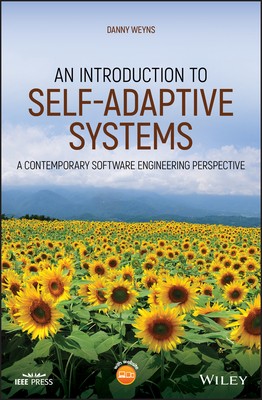
- We will send in 10–14 business days.
- Author: Danny Weyns
- Publisher: Wiley-IEEE Computer Society Pr
- ISBN-10: 1119574943
- ISBN-13: 9781119574941
- Format: 17.5 x 25.2 x 2 cm, kieti viršeliai
- Language: English
- SAVE -10% with code: EXTRA
Reviews
Description
A concise and practical introduction to the foundations and engineering principles of self-adaptation
Though it has recently gained significant momentum, the topic of self-adaptation remains largely under-addressed in academic and technical literature. This book changes that. Using a systematic and holistic approach, An Introduction to Self-adaptive Systems: A Contemporary Software Engineering Perspective provides readers with an accessible set of basic principles, engineering foundations, and applications of self-adaptation in software-intensive systems.
It places self-adaptation in the context of techniques like uncertainty management, feedback control, online reasoning, and machine learning while acknowledging the growing consensus in the software engineering community that self-adaptation will be a crucial enabling feature in tackling the challenges of new, emerging, and future systems.
The author combines cutting-edge technical research with basic principles and real-world insights to create a practical and strategically effective guide to self-adaptation. He includes features such as:
- An analysis of the foundational engineering principles and applications of self-adaptation in different domains, including the Internet-of-Things, cloud computing, and cyber-physical systems
- End-of-chapter exercises at four different levels of complexity and difficulty
- An accompanying author-hosted website with slides, selected exercises and solutions, models, and code
Perfect for researchers, students, teachers, industry leaders, and practitioners in fields that directly or peripherally involve software engineering, as well as those in academia involved in a class on self-adaptivity, this book belongs on the shelves of anyone with an interest in the future of software and its engineering.
EXTRA 10 % discount with code: EXTRA
The promotion ends in 21d.10:34:32
The discount code is valid when purchasing from 10 €. Discounts do not stack.
- Author: Danny Weyns
- Publisher: Wiley-IEEE Computer Society Pr
- ISBN-10: 1119574943
- ISBN-13: 9781119574941
- Format: 17.5 x 25.2 x 2 cm, kieti viršeliai
- Language: English English
A concise and practical introduction to the foundations and engineering principles of self-adaptation
Though it has recently gained significant momentum, the topic of self-adaptation remains largely under-addressed in academic and technical literature. This book changes that. Using a systematic and holistic approach, An Introduction to Self-adaptive Systems: A Contemporary Software Engineering Perspective provides readers with an accessible set of basic principles, engineering foundations, and applications of self-adaptation in software-intensive systems.
It places self-adaptation in the context of techniques like uncertainty management, feedback control, online reasoning, and machine learning while acknowledging the growing consensus in the software engineering community that self-adaptation will be a crucial enabling feature in tackling the challenges of new, emerging, and future systems.
The author combines cutting-edge technical research with basic principles and real-world insights to create a practical and strategically effective guide to self-adaptation. He includes features such as:
- An analysis of the foundational engineering principles and applications of self-adaptation in different domains, including the Internet-of-Things, cloud computing, and cyber-physical systems
- End-of-chapter exercises at four different levels of complexity and difficulty
- An accompanying author-hosted website with slides, selected exercises and solutions, models, and code
Perfect for researchers, students, teachers, industry leaders, and practitioners in fields that directly or peripherally involve software engineering, as well as those in academia involved in a class on self-adaptivity, this book belongs on the shelves of anyone with an interest in the future of software and its engineering.


Reviews